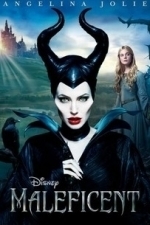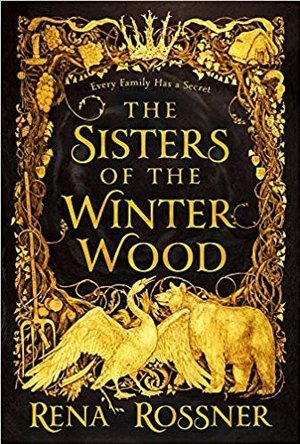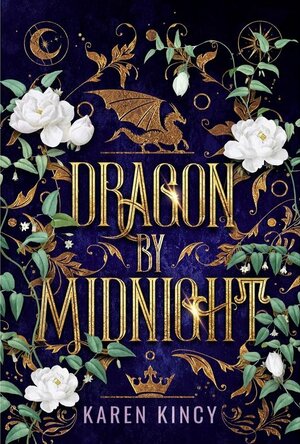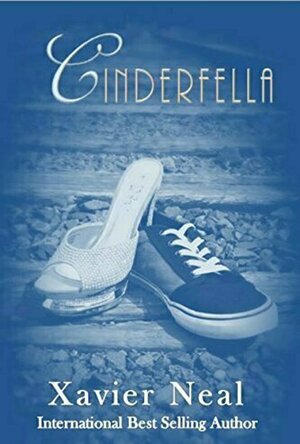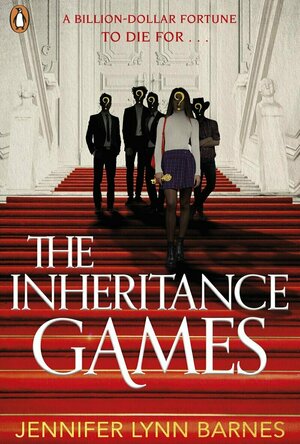Search
<i>This eBook was provided by the publisher via NetGalley in exchange for an honest</i>
People grieve in many different ways, as Shari Arnold shows in her young adult novel <i>Neverland</i>. It has been four months since seventeen-year-old Livy lost her little sister Jenna to leukemia. Her mother has become a workaholic, her father a ghost, but Livy has become determined to help as many sick children as she can, either by reading to them or becoming a bone marrow donor. Livy’s life revolves solely around the children at the hospital but things begin to change when she meets the mysterious Meyer who takes her out of her comfort zone and challenges her to have fun.
As suggested by the title, <i>Neverland</i> is based upon the well-known story of Peter Pan. Meyer, like Peter, loves an adventure and whisks Livy away to do things she would never have thought to do on her own. By showing Livy how to have fun, Meyer hopes to encourage her to move on, but the big question is, is Livy ready to live without her sister?
The first part of the book has a contemporary setting that makes the story appear to be the typical girl meets boy who makes everything better type of novel, however the second section is completely different. Part two is so full of fantasy and magical ideas that it feels like a completely different book. Initially it was exciting when Meyer was something of an enigma, but suddenly the story becomes childish and fake once his true identity has been revealed, thus making the novel less gripping.
Nonetheless, <i>Neverland</i> is very moving as is anything regarding the death of young children. Arnold provides an interesting retelling of the delightful fairytale giving a totally new meaning to the children who do not grow up. Those who enjoy contemporary and fantasy novels will enjoy both elements however some readers expecting a young adult love story may be disappointed with the unrealistic turn the novel takes part way through.
People grieve in many different ways, as Shari Arnold shows in her young adult novel <i>Neverland</i>. It has been four months since seventeen-year-old Livy lost her little sister Jenna to leukemia. Her mother has become a workaholic, her father a ghost, but Livy has become determined to help as many sick children as she can, either by reading to them or becoming a bone marrow donor. Livy’s life revolves solely around the children at the hospital but things begin to change when she meets the mysterious Meyer who takes her out of her comfort zone and challenges her to have fun.
As suggested by the title, <i>Neverland</i> is based upon the well-known story of Peter Pan. Meyer, like Peter, loves an adventure and whisks Livy away to do things she would never have thought to do on her own. By showing Livy how to have fun, Meyer hopes to encourage her to move on, but the big question is, is Livy ready to live without her sister?
The first part of the book has a contemporary setting that makes the story appear to be the typical girl meets boy who makes everything better type of novel, however the second section is completely different. Part two is so full of fantasy and magical ideas that it feels like a completely different book. Initially it was exciting when Meyer was something of an enigma, but suddenly the story becomes childish and fake once his true identity has been revealed, thus making the novel less gripping.
Nonetheless, <i>Neverland</i> is very moving as is anything regarding the death of young children. Arnold provides an interesting retelling of the delightful fairytale giving a totally new meaning to the children who do not grow up. Those who enjoy contemporary and fantasy novels will enjoy both elements however some readers expecting a young adult love story may be disappointed with the unrealistic turn the novel takes part way through.
LeftSideCut (3776 KP) rated Maleficent (2014) in Movies
Oct 19, 2019 (Updated Oct 25, 2019)
A refreshing take on a beloved classic
Sleeping Beauty is one of the most famous classic animated Disney features of all time, and that is partly thanks to the villain of the piece - Maleficent.
When I think back to watching Sleeping Beauty as a child, Maleficent is the main aspect that sticks out.
A being of seemingly pure evil, who would curse a baby just because.
This live action re telling of Sleeping Beauty shifts the focus to Maleficent almost exclusively, and explores an untold backstory that gives the character a whole different aspect.
And I reckon it's done pretty well.
Angelina Jolie is obviously having fun playing the strong fairy Queen, who turns to the dark side after she's done over by King Stefan, and she plays both the sympathetic and evil parts of Maleficent with style, with sprinkles of dark humour here and there for good measure.
Stefan is played by Sharlto Copley, who I loved im both District 9, and Elysium, so it's interesting to see him do something different here.
Aurora is more of a side character this time around, but Elle Fanning does a good job of fitting in when the narrative calls for it.
The film looks great for the most part. The more colourful palette of The Moors is lovely and feels suitably magical, and the darkness of the thorned forest plays well with a more gothic athstetic, and it's all backed up by a terrific score (courtesy of James Newton Howard).
The CGI is still pretty passable considering the film is now 5 years old, only becoming more obvious in the flying scenes.
The only things I didn't like about Maleficent, was mainly the three fairy godmothers. I know that Disney need to fill a certain quota of silly humour, but they became quickly annoying and actually quite out of place with the rest of the film.
Some of the dialogue is quite cheesy (especially when Maleficent performs the curse on Aurora) but little things like this are to be expected from a Disney fairytale.
All in all, Maleficent is great fun, and pretty good twist to a well established classic story.
When I think back to watching Sleeping Beauty as a child, Maleficent is the main aspect that sticks out.
A being of seemingly pure evil, who would curse a baby just because.
This live action re telling of Sleeping Beauty shifts the focus to Maleficent almost exclusively, and explores an untold backstory that gives the character a whole different aspect.
And I reckon it's done pretty well.
Angelina Jolie is obviously having fun playing the strong fairy Queen, who turns to the dark side after she's done over by King Stefan, and she plays both the sympathetic and evil parts of Maleficent with style, with sprinkles of dark humour here and there for good measure.
Stefan is played by Sharlto Copley, who I loved im both District 9, and Elysium, so it's interesting to see him do something different here.
Aurora is more of a side character this time around, but Elle Fanning does a good job of fitting in when the narrative calls for it.
The film looks great for the most part. The more colourful palette of The Moors is lovely and feels suitably magical, and the darkness of the thorned forest plays well with a more gothic athstetic, and it's all backed up by a terrific score (courtesy of James Newton Howard).
The CGI is still pretty passable considering the film is now 5 years old, only becoming more obvious in the flying scenes.
The only things I didn't like about Maleficent, was mainly the three fairy godmothers. I know that Disney need to fill a certain quota of silly humour, but they became quickly annoying and actually quite out of place with the rest of the film.
Some of the dialogue is quite cheesy (especially when Maleficent performs the curse on Aurora) but little things like this are to be expected from a Disney fairytale.
All in all, Maleficent is great fun, and pretty good twist to a well established classic story.
Neon's Nerd Nexus (360 KP) rated Midsommar (2019) in Movies
Jul 5, 2019
I'm A Believer
Midsommar is a modern day folklore fairytale masterpiece that's traumatizing, intoxicating, stomach churning & deeply hypnotic. If you've seen Raw or the Witch & enjoyed them Midsommar is easily on par standard wise & comparability wise to them. A tale of love, passion, grievance, trauma, connection, communion, religion, celebration, purity & punishment. Filled with folklore, depth, symbolisum, metaphores & small visual clues Midsommar is one giant puzzle box & for everyone paying close attention there are entire multiple layers hidden in everything. Be it the pictures hung on the walls in the background, dialog, music cues, camera angles, subbtle special effects, screen transitions, facial expressions & props. Most people watching this film will leave wondering what strange horror movie they just saw & while technically it is a horror as the film played out I began to realise its intentions thus seeing its beauty & messages clearly. For instance like how if we all united as one unity & learnt to love rather than hate we could live in perfect harmony with nature. Acting is jaw dropping especially from the lead actress & sound design realises that creating tension doesn't necessarily need any sound at all. Visually its vibrant & striking with subtle effects like things pulsing & warping as if reality its self is an illusion. Midsommar made me feel quezy, disturbed, intreagued & so happy with chills going up & down my spine frequently as I also couldn't shake this feeling of dread the entire time. When violence hits it hits hard & sickeningly rough but as the last scene played out & the perfect ending hit I was smiling the most I have during a film in a long time. What an intelligent, thought provoking look at how a trauma in life can make us more susceptible & easily lead, how guilt/trauma manifests in us, how innocence & purity thrives above deceit & selfishness, but most importantly how we could all live way happier & more for filling lives as if we all respected each other & the world around us experiencing both pain & pleasure as one. Go see it sit in the front row & let Midsommar embrace & absorb you in the best experience of the year so far by far.

BandDings: A Musical Adventure
Education and Games
App
Inspired by the Grimm fairytale “Town Musicians of Bremen,” BandDings whisks even the youngest...
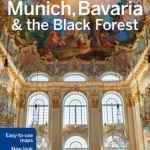
Lonely Planet Munich, Bavaria & the Black Forest
Lonely Planet, Marc Di Duca and Kerry Christiani
Book
Lonely Planet: The world's leading travel guide publisher Lonely Planet Munich, Bavaria & the Black...
Eleanor Luhar (47 KP) rated The Sisters of the Winter Wood in Books
Jun 24, 2019
I'm going to avoid discussing the plot too much so I don't spoil any potential readers (and I do recommend you read this!).
This book is set in Dubossary, narrated alternately by Liba and Laya. Liba is the older of the two, the only children in their family. They are Jews, and while this book was hugely about their faith and discrimination against them, it is not only about that. This book was like a new fairytale. It had magic in every page, and was genuinely exciting to read. There were tragic elements, tons of romance, and even a sense of suspense.
The girls are left in their home alone when their parents rush off to Kupel in a family emergency. But just as they plan to leave, the girls' Mami decides it's time to tell her daughters who they really are: a bear and a swan.
As I said, I will not delve into the story too much. But I really loved the story involving Laya and the Hovlin brothers, as well as Liba's own internal struggles. Laya's romance at the end of the book was, in my opinion, a little rushed and unexpected, but that's the only real downside I have.
The writing was lovely - it included Yiddish and Hebrew dialect, which was translated in the Author's Note at the end. (A quick side note; I actually read the entire Note, which is really quite rare for me.) And Laya's account, in particular, felt so poetic. She was definitely my favourite character, as much as I love Liba, too. And the relationship between the girls is so, so lovely. No matter how much they try to push each other away, they are always there for each other in the end.
As I enjoyed this book so much, I tried to talk about it with my boyfriend. However, I soon discovered that describing this story is really quite a feat. It was full of little details and twists that just made the story.
I really liked this book. As I only received an ARC and not a final edition, I didn't have the official layout, which I can imagine may add to it also. Even so, I'm easily giving this 4.5 to 5 stars.
This book is set in Dubossary, narrated alternately by Liba and Laya. Liba is the older of the two, the only children in their family. They are Jews, and while this book was hugely about their faith and discrimination against them, it is not only about that. This book was like a new fairytale. It had magic in every page, and was genuinely exciting to read. There were tragic elements, tons of romance, and even a sense of suspense.
The girls are left in their home alone when their parents rush off to Kupel in a family emergency. But just as they plan to leave, the girls' Mami decides it's time to tell her daughters who they really are: a bear and a swan.
As I said, I will not delve into the story too much. But I really loved the story involving Laya and the Hovlin brothers, as well as Liba's own internal struggles. Laya's romance at the end of the book was, in my opinion, a little rushed and unexpected, but that's the only real downside I have.
The writing was lovely - it included Yiddish and Hebrew dialect, which was translated in the Author's Note at the end. (A quick side note; I actually read the entire Note, which is really quite rare for me.) And Laya's account, in particular, felt so poetic. She was definitely my favourite character, as much as I love Liba, too. And the relationship between the girls is so, so lovely. No matter how much they try to push each other away, they are always there for each other in the end.
As I enjoyed this book so much, I tried to talk about it with my boyfriend. However, I soon discovered that describing this story is really quite a feat. It was full of little details and twists that just made the story.
I really liked this book. As I only received an ARC and not a final edition, I didn't have the official layout, which I can imagine may add to it also. Even so, I'm easily giving this 4.5 to 5 stars.
WB
When Broadway Went to Hollywood
Book
The Wizard of Oz, Gigi, Top Hat, High Society - some of the most popular movie musicals ever made...
Lottie disney bookworm (1056 KP) rated Dragon By Midnight in Books
Aug 30, 2021
The concept of Dragon by Midnight immediately intrigued me: a Cinderella retelling where, at the stroke of midnight, Cinderella becomes a dragon and is hunted by Prince Charming? Yes please!
Karen Kincy had some bestseller-worthy ideas when it came to this book: I loved Sikandar's mysterious sorcerer vibe and dark past; the Jinni gave Arabian nights/Aladdin vibes and the plot twist of the curse was brilliant.
However, in my opinion, the major elements that made Dragon by Midnight great were just not developed enough and I was left with unanswered questions, in particular with Cinderella's story line.
Sikandar is bound to be everyone's favourite character and the description of him as a cinnamon roll hero is perfect. I would have liked him to keep his mystery for a bit longer and for the worthiness of his previous actions to be withheld instead of instantly revealed - it felt like he was a mysterious murderer one second and then an amazing hero the next . Although this was in keeping with the fast-paced nature of the story.
Similarly, the romance between Sikandar and Cinderella developed so quickly. She almost fell in love with him straight away! It was also very fluffy and cute: which is not a criticism! This is a YA book after all. However, sometimes Cinderella seemed too wrapped up in the cute boy and less concerned about ... well, being a dragon!
Prince Benedict Charming was brilliant in his arrogance and cringe worthiness. I did expect a bit more action and dragon-hunting from him though and his attitude towards Cinderella when she returned to the castle as a girl was very odd. I truly couldn't tell if he was so self-absorbed he didn't care what had happened, or if he was plotting something.
Overall I did enjoy Dragon by Midnight and read it within a day. It is a very cute, fast-paced fairytale with some genius ideas. The overly descriptive language and lack of character development would push it closer to the middle-grade side of YA for me but I enjoyed the story and will possibly pick up the sequel if I see it.
I received an advance review copy for free, and I am leaving this review voluntarily.
Karen Kincy had some bestseller-worthy ideas when it came to this book: I loved Sikandar's mysterious sorcerer vibe and dark past; the Jinni gave Arabian nights/Aladdin vibes and the plot twist of the curse was brilliant.
However, in my opinion, the major elements that made Dragon by Midnight great were just not developed enough and I was left with unanswered questions, in particular with Cinderella's story line.
Sikandar is bound to be everyone's favourite character and the description of him as a cinnamon roll hero is perfect. I would have liked him to keep his mystery for a bit longer and for the worthiness of his previous actions to be withheld instead of instantly revealed - it felt like he was a mysterious murderer one second and then an amazing hero the next . Although this was in keeping with the fast-paced nature of the story.
Similarly, the romance between Sikandar and Cinderella developed so quickly. She almost fell in love with him straight away! It was also very fluffy and cute: which is not a criticism! This is a YA book after all. However, sometimes Cinderella seemed too wrapped up in the cute boy and less concerned about ... well, being a dragon!
Prince Benedict Charming was brilliant in his arrogance and cringe worthiness. I did expect a bit more action and dragon-hunting from him though and his attitude towards Cinderella when she returned to the castle as a girl was very odd. I truly couldn't tell if he was so self-absorbed he didn't care what had happened, or if he was plotting something.
Overall I did enjoy Dragon by Midnight and read it within a day. It is a very cute, fast-paced fairytale with some genius ideas. The overly descriptive language and lack of character development would push it closer to the middle-grade side of YA for me but I enjoyed the story and will possibly pick up the sequel if I see it.
I received an advance review copy for free, and I am leaving this review voluntarily.
Merissa (13816 KP) rated Cinderfella in Books
Apr 12, 2023
This story is about a young man, little more than a boy himself, who finds that he has to become the 'man' of the family at far too young an age. For Connor, life sucks but he is still trying to do his best as he has a beautiful little girl to try for. Mak is indeed a blessing and certainly steals the show whenever she is around. Those nearly three-year-old tantrums though? Yeesh! Far too lifelike 😉 Gianna is the total opposite of Connor, from what he can see. A privileged lifestyle, nothing that's needed and what she has, she doesn't appreciate.
This story shows you that you cannot judge by what you think you know. Everyone lives behind a mask of some form or another. What may look like a privileged life may be anything but that. This is a lesson that Connor has to learn, along with others, if he is going to make a go of his life.
I loved that the book was written from the male's perspective and I also loved the fact that they didn't just jump straight into bed. How this was written made the growth of their relationship all the more special and all the more heartbreaking when it didn't work the way you wanted it to.
There were a couple of things that didn't sit right for me which is why I've given 4 stars, but to be fair, I can't actually think of a different way to do it either. I loved that they were putting on a show and it was pressured, but the idea of him wanting to be an actor just didn't feel right.
This is a feel-good story with a twist on the classic fairytale (obviously) but still manages to stand on its own feet. Definitely recommended for all fans of YA/NA Contemporary.
* A copy of this book was provided to me with no requirements for a review. I voluntarily read this book; the comments here are my honest opinion. *
Merissa
Archaeolibrarian - I Dig Good Books!
August 13, 2016
This story shows you that you cannot judge by what you think you know. Everyone lives behind a mask of some form or another. What may look like a privileged life may be anything but that. This is a lesson that Connor has to learn, along with others, if he is going to make a go of his life.
I loved that the book was written from the male's perspective and I also loved the fact that they didn't just jump straight into bed. How this was written made the growth of their relationship all the more special and all the more heartbreaking when it didn't work the way you wanted it to.
There were a couple of things that didn't sit right for me which is why I've given 4 stars, but to be fair, I can't actually think of a different way to do it either. I loved that they were putting on a show and it was pressured, but the idea of him wanting to be an actor just didn't feel right.
This is a feel-good story with a twist on the classic fairytale (obviously) but still manages to stand on its own feet. Definitely recommended for all fans of YA/NA Contemporary.
* A copy of this book was provided to me with no requirements for a review. I voluntarily read this book; the comments here are my honest opinion. *
Merissa
Archaeolibrarian - I Dig Good Books!
August 13, 2016
ClareR (6101 KP) rated The Inheritance Games in Books
Sep 8, 2020
I have read and enjoyed countless YA books, and The Inheritance Games was no exception. It’s touted as a rags-to-riches, Cinderella type story, and there is most certainly a fairytale feel to this. I like fairytales. They’re a gateway drug in to fantasy as a child, I think. Or at least they were for me.
Avery Grambs wants more from her life than living hand to mouth, as she seems to be doing with her sister. Her mother has died, she has no contact with her father. She decides that the best way to change her life is to get a good education at a very good college, with the help of a scholarship. Indeed, she does seem to be very clever.
And then a young man comes to her school, and tells her that she has inherited some of the fortune of Tobias Hawthorne - a man she has never met and knows nothing about. In order to keep her inheritance and deprive the rest of the Hawthornes from getting their hands on the money, Avery has to live for a year in the Hawthorne mansion. Sounds easy, but it’s not. It’s a sprawling, maze-like place, with secret corridors and countless rooms. And the Hawthorne grandsons, on the whole, don’t seem to be hugely keen on her living with them, and neither does their mother.
No-one, including Avery, can understand why she should inherit the Hawthorne fortune. Tobias Hawthorne has one last Rick up his sleeve - a treasure hunt of sorts, that he set before his death for his grandsons and Avery. Just the thing to bring them together - or is it?
I thoroughly enjoyed this. Yes, it’s a bit far-fetched, but who hasn’t wanted to become the equivalent of a billionaire? To never need to worry about money? To have the house version of the Tardis?! This last bit, actually, would totally do it for me - as long as I could cleaners!
I think this will be the first in a trilogy, and I have a sneaking suspicion that I’ll be reading the next one. YA isn’t just for the kids, you know!
Many thanks to the Pigeonhole for making sure I read another one of my NetGalley books, and the publisher for an ebook copy.
Avery Grambs wants more from her life than living hand to mouth, as she seems to be doing with her sister. Her mother has died, she has no contact with her father. She decides that the best way to change her life is to get a good education at a very good college, with the help of a scholarship. Indeed, she does seem to be very clever.
And then a young man comes to her school, and tells her that she has inherited some of the fortune of Tobias Hawthorne - a man she has never met and knows nothing about. In order to keep her inheritance and deprive the rest of the Hawthornes from getting their hands on the money, Avery has to live for a year in the Hawthorne mansion. Sounds easy, but it’s not. It’s a sprawling, maze-like place, with secret corridors and countless rooms. And the Hawthorne grandsons, on the whole, don’t seem to be hugely keen on her living with them, and neither does their mother.
No-one, including Avery, can understand why she should inherit the Hawthorne fortune. Tobias Hawthorne has one last Rick up his sleeve - a treasure hunt of sorts, that he set before his death for his grandsons and Avery. Just the thing to bring them together - or is it?
I thoroughly enjoyed this. Yes, it’s a bit far-fetched, but who hasn’t wanted to become the equivalent of a billionaire? To never need to worry about money? To have the house version of the Tardis?! This last bit, actually, would totally do it for me - as long as I could cleaners!
I think this will be the first in a trilogy, and I have a sneaking suspicion that I’ll be reading the next one. YA isn’t just for the kids, you know!
Many thanks to the Pigeonhole for making sure I read another one of my NetGalley books, and the publisher for an ebook copy.

